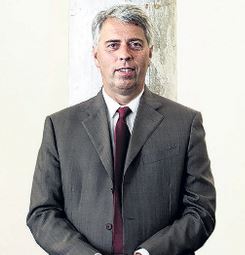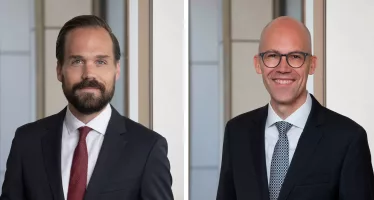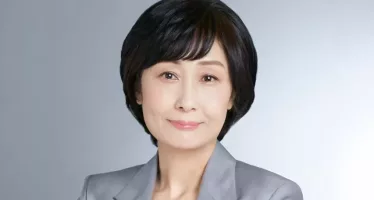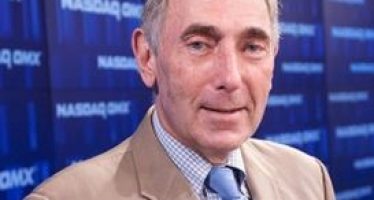Peter Blom of Triodos Bank: The Assimilated Radical
 It’s the idealists you have to look out for. The more dishonourable aspects of the financial world might have been getting a bad rap as of late, but the harm this does pales in comparison to the damage wrought by those trying to make a better world.
It’s the idealists you have to look out for. The more dishonourable aspects of the financial world might have been getting a bad rap as of late, but the harm this does pales in comparison to the damage wrought by those trying to make a better world.
The negligence and greed endemic to business as usual might be slowly bleeding the planet dry, but the destruction it causes is just that; slow. Slow and – historically at least – avoidable: Some of the brightest passages of the human story describe the demise of business as usual. Every one of those passages is populated with characters committed to the idea of a better tomorrow. However, those characters bear an eerie resemblance to those appearing in the very darkest of chapters. An idealist with enough momentum will change the world, whether we like it or not.
The language might seem just a tad rich for describing a bunch of bankers with a heart. For most people the financial sector is the very definition of a playground for those with less well developed senses of fair play, morality and compassion. Indeed, banks as such may not be good or evil; they just exist to make money and preferably lots of it.
From the ruins of the recent financial crisis, an entirely new sort of bank is now emerging and plotting the very downfall – or at least driving change – of the ways of the old world order. This might be a good thing – some would even say a necessity – though it also requires a certain degree of weariness on our part.
Peter Blom is an idealist. He is a banker too. The latter comes in second though. So far, Mr Blom has had two employers in his life and one of them was a vegetarian café with an anthroposophical drift. His current employer is the Triodos Bank of which he is now CEO.
Triodos Bank, a forerunner in ethical banking founded in 1980, has enjoyed a slow but steady growth. It now boasts branches in five countries. Mr Blom became a member the Club of Rome in 2010.
If Peter Blom is a freak in the financial world, one wouldn’t tell from his wardrobe. He looks the typical Dutch business man: Dull grey suit with the tie being optional and facial hair absent. Then he starts talking and the first proper noun to cross his lips is Marx. He seems to actually have read Karl Marx. But of course, bankers study economics. It’s a fair guess that most of them at some point have read Marx.
After quickly – and predictably – knocking Karl of his pedestal, Mr Blom talks at length about his admiration for the thoughts of Rudolph Steiner. Now Steiner is pretty far out there, but not an advocate of petrol bombs and proletarian uprisings. He speaks about Steiner’s threefold social theory, and how it shapes his and his bank’s approach to business.
The mission of Triodos Bank is to be a tool through which people become more conscious of what their money is doing. Mr Blom even goes so far as to state that profit is not the aim but merely an indication of sound business. This is a curious sentiment for a bank CEO.
“An idealist with enough momentum will change the world, whether we like it or not.”
Triodos Bank sets very high standards for themselves as well as for the companies it invests in. The bank only conducts business with companies deemed to be sustainable and whose activities fit the ideals of the bank. Think green energy, organic farming, microfinance, social welfare, and culture. Every single one of the businesses it works with is featured on the Triodos website. This dizzying level of transparency may be the best aspect of the bank.
Precisely because of the unprecedented level of transparency offered, clients may find out that the bank’s sense of ethics does not always align with their own. This may be the fundamental flaw in the whole concept of ethical banking: The ethics by which a bank such as Triodos operates represent usually just one particular set of values.
There are a lot of things Triodos Bank stands for which are most laudabIe, other are at worst harmless, but only because Triodos is such a small bank. But they do of course not wish to stay small – Triodos is ambitious like the best of them and wants nothing less than to change the entire banking system.
What happens when the financial centres of the world start operating on competing idealistic principals? The simple supply-and-demand model of economics almost by definition lags in sustainability. Business practices will continue so long as they are profitable and a shift is only made when the return on monies invested approaches zero.
What would happen if global resource allocation is determined by a set of well-meant but ultimately flawed ideals? Marrying political ideals to power breeds dogma. It is therefore hard to see a world run by dogma-driven banks faring any better than one run by dogma-inspired governments.
It would appear Mr Peter Blom is the more dangerous kind of radical: The assimilated radical. Sure, he might be an oddball, but he’s a straight-laced oddball. The concerns expressed are merely that: concerns for a beautiful project with the potential to accomplish a lot of good. Triodos is a project born of an inspired, yet sensible mind.
The fact that Mr Blom does not shed his lofty ideals along with his coat and hat as he enters his office in the morning, is nothing if not praiseworthy.
Follow your heart, use your head, and proceed with caution.
You may have an interest in also reading…
Literally Centuries of Experience and Expertise Behind This Bank
The oldest financial institution in Germany has been going strong since the 16th Century… Berenberg is Germany’s oldest private bank
Mitsuko Tottori: Flying High at Japan Airlines
Mitsuko Tottori, a name synonymous with resilience, dedication, and a groundbreaking ascent in the aviation industry, has become the first
Sustainable Stock Exchanges: The Relevance of Green Indices
At the fourth Global Dialogue of Sustainable Stock Exchange (SSE) Initiative, last Tuesday in Geneva, Nasdaq OMX vice-chairman Meyer “Sandy”


















































































